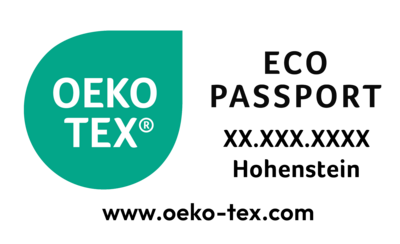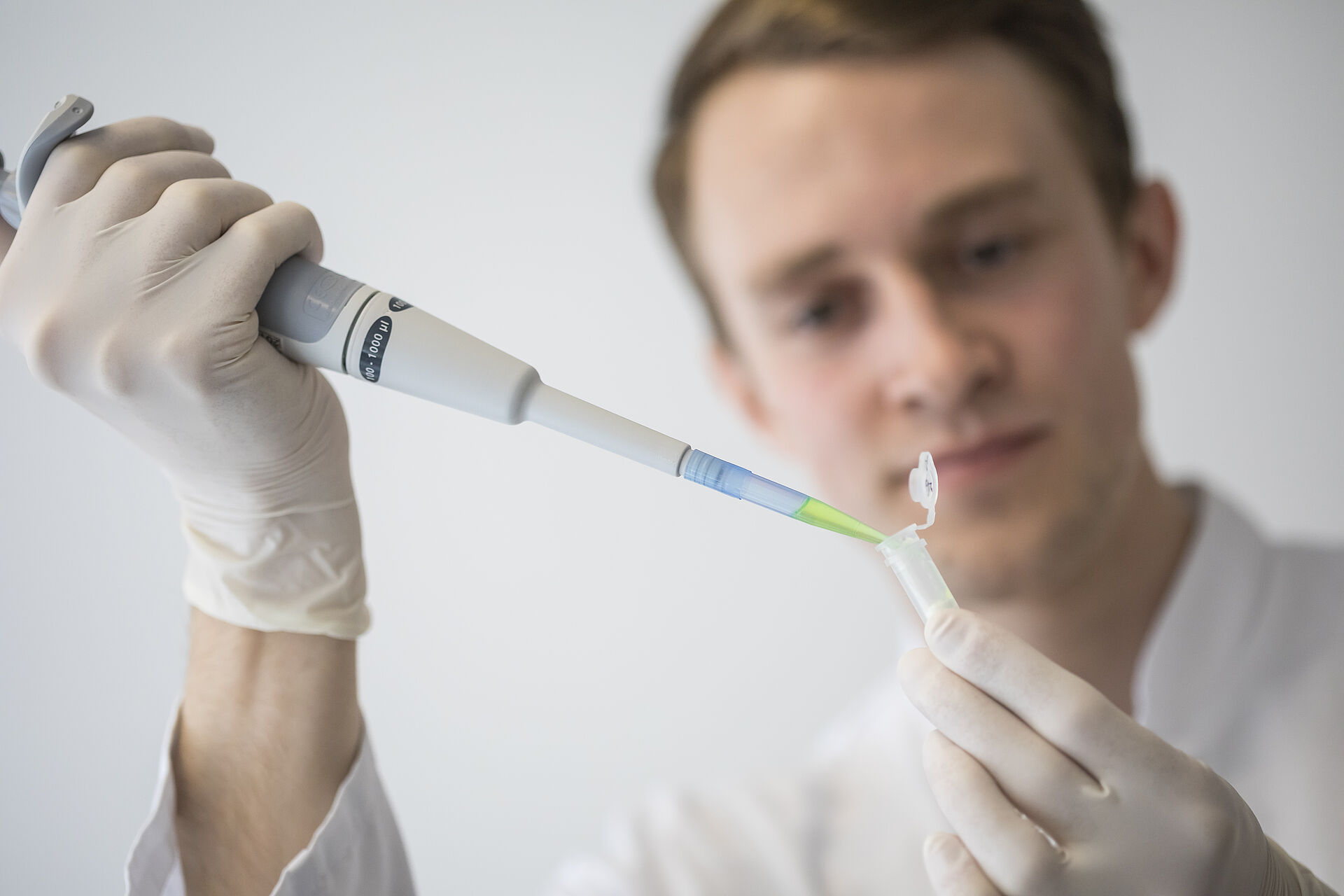
What is ECO PASSPORT?
OEKO-TEX® ECO PASSPORT is an independent, multi-stage testing and certification system for chemicals, colourants and auxiliaries used to manufacture textiles and leather. The process verifies that chemical products and their ingredients meet specific requirements for safety, sustainability and regulatory compliance.
The ECO PASSPORT Restricted Substance List (RSL) combines substances restricted through ECO PASSPORT, STANDARD 100, LEATHER STANDARD and STeP, integrating seamlessly with downstream OEKO-TEX® certifications.
Further specifications
ECO PASSPORT certification involves a multi-stage procedure to assess whether each individual substance in a chemical product is not harmful to human health and that it meets statutory requirements. The first two stages are mandatory to receive a certificate. Stage three is currently optional.
- CAS Number Screening:
During the CAS number screening, we compare the product components declared by the applicant against the list of harmful chemicals for the ECO PASSPORT (RSL/MRSL) and SVHC Candidate List from REACH. - Analytical Testing:
Analytical verification in our labs ensures that the certified chemicals can be used in the sustainable production of textiles and leather articles that are safe for human ecology. - Self-Assessment & On-Site Visit (optional):
An on-site audit (optional) verifies the data submitted by the manufacturer as part of a self-assessment (mandatory) at facility level. Applicants must have systems in place for environmental management, health and safety, quality management and social responsibility.
ZDHC conformance
- Completion of the CAS number screening and the analytical verification leads to ZDHC Conformance Level 1.
- Together with the mandatory self-assessment, the on-site audit qualifies for ZDHC compliance level 2. If requirements regarding chemical hazard assessment capability are also met, level 3 is also possible.
How can ECO PASSPORT support you?
Chemical industry
ECO PASSPORT certification is a reliable third-party assessment of your chemicals that helps you market your products when it comes to communicating your product stewardship and sustainable practices.
Textile / leather industries
The ECO PASSPORT certification assists you in the selection of chemicals that are environmentally friendly and harmless in terms of human ecology. You have reliable control over the substances used, right from their procurement, even before you feed them into your production process.
Basic facts
Validity
An ECO PASSPORT certificate is valid for one year and can be renewed up to three months before it expires.
By signing the declaration of conformity in the application, the applicant authorises the OEKO-TEX® Association to perform control tests on its certified products during the period that certificate is valid. You can apply to renew the certificate up to three months before it expires.
Target group
Any manufacturer of textile or leather chemicals can apply for an ECO PASSPORT certificate. ECO PASSPORT is suitable for all chemical products (chemicals, colourants and auxiliaries) - and their formulations - that are used in the textile, leather, apparel, footwear, home textiles or similar sectors.
Wholesalers and resellers of chemicals can also apply for an ECO PASSPORT certificate in their own name for products already covered by the chemical manufacturer's certificate if no additional changes to the composition have been made.
If no manufacturer's certificate is available, it is possible for distributors and retailers to apply for a limited certification. This temporary certification may only be renewed once for a maximum certificate validity of two years total. (Annual certificate renewal for chemical manufacturers is not limited.)
Criteria / Requirements
ECO PASSPORT certification combines requirements for harmful substances from all other OEKO-TEX® services (e.g. STANDARD 100 RSL and STeP MRSL) with statutory requirements. The ECO PASSPORT RSL is updated annually, based on newest scientific findings, legal requirements and market developments.
Certification process
- Application
The applicant completes the application form and submits data on the chemicals used. - Self assessment
The applicant submits data about the existing manufacturing conditions in form of a self-assessment questionnaire. - RSL / MRSL check
We carry out a CAS number comparison of the indicated substances. - Analytical verification
We analyse the chemicals in our labs. - On-site visit (optional)
We carry out a company visit to check the applicant's provided data on facility level. - Issue of certificate
We issue all relevant reports and the ECO PASSPORT certificate for you.
Your benefits at a glance
- ECO PASSPORT provides textile and leather manufacturers a trustworthy solution for responsibly sourcing independently verified chemicals that are safer for human ecology and the environment.
- ECO PASSPOrt ensures compliance with legal requirements, ZDHC levels 1-3, REACH SVHC list, GoBlu/BHive, Foursource and other industry initiatives.
- 3rd party certification protects confidential product data while providing transparency that market demands.
- ECO PASSPORT provides chemical managers reliable control over substances before entering production.
- ECO PASSPORT builds feedback into the process so improvements can be implemented at each stage to avoid extra analysis costs.
- ECO PASSPORT integrates seamlessly into the OEKO-TEX® modular system and downstream certifications (STeP for environmentally friendly production facilities, STANDARD 100 and LEATHER STANDARD for safer products).
- The breakdown into a multi-stage system means that any improvements required can be carried out after each stage, therefore avoiding unnecessary analysis costs.
- ECO PASSPORT promotes certified chemicals via the OEKO-TEX® Buying Guide - a free, online sourcing tool accessed >250,000 times/year.
